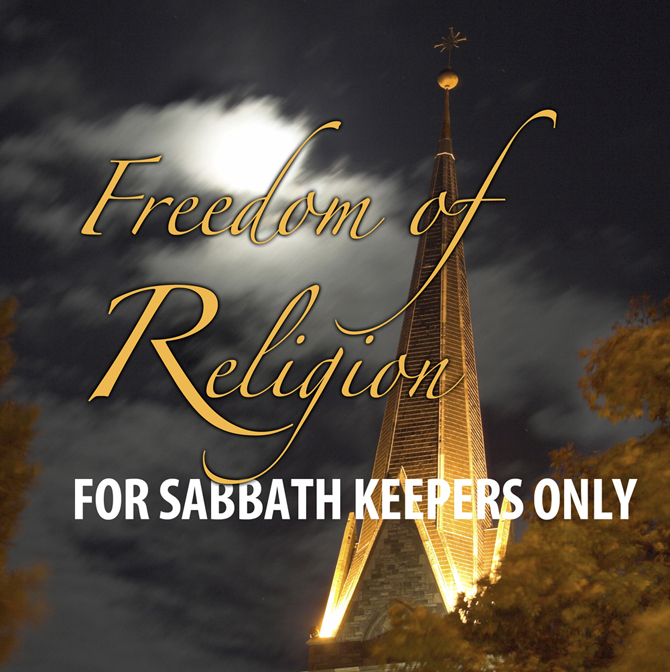By Colleen Tinker
The Seventh-day Adventist organization in Kenya is rejoicing that, after a five-year battle, the court of appeals has ordered the Education Ministry to accommodate students who worship on Sabbath.
Over the years, several Adventist students had been expelled for failing to take exams or to attend classes on Sabbath. In 2013, in fact, the Kenyan High Court said that accommodating Sabbath-keepers “would cause chaos in the education system.”
The church appealed, however, pointing out that students who attended church on Sunday had a day off for worship. This month on Friday, March 3, the three-judge court of appeals “ruled that Adventist students have the right to worship on Saturday, and it ordered the Education Ministry to rework its policies to eliminate conflict between education and religion in schools.”
This ruling, however, does not surprise many onlookers who note that this ruling comes just months after Adventist David Maraga was appointed to the office of Chief Justice in Kenya on October 18, 2016, after being the presiding judge of the Court of Appeals in Kisumu.
Brazil changes exam day
Meanwhile, the Brazilian Department of Education in Brasilia announced on March 9 that the two-day national exit exam for high school seniors—known as “the Enem”—will be only held on two consecutive Sundays instead of on Saturday and Sunday on a single weekend. Education secretary Jose Filho said, “As we promote the Enem exam, it is our duty to treat everyone with dignity, respect for basic human rights, and to apply the same ideal conditions to every student.”
The two-day exam, which historically started at 1:00 PM and was administered on a Saturday and a Sunday, had previously been administered to Sabbath-keepers after sundown. This accommodation, however, provided a hardship for the estimated 70,000 students who requested late starts on the test, because they were required to be “shut away for hours to avoid cheating before being finally allowed into the exam room.”
The Adventist Review comments:
“Sabbath-keepers, specifically Seventh-day Adventists, are not asking for special privileges in contrast to other candidates,” said Erton Köhler, president of the South American Division, or church region, of the world church. “On the contrary, they just ask to enjoy the same opportunities before such an important moment, which can potentially define the professional future of thousands of them for years to come…”
According to church statistics in South America, there are 1.6 million baptized Seventh-day Adventist members in Brazil, out of the 20 million baptized members around the world, which makes this South American nation the country with most church members in the world.
Adventists not the only Sabbatarians
The Adventist Review did not mention that Jewish groups were also part of the effort to change the exam day. IsraelNationalNews.com reports that the president of the Brazilian Israelite Confederation said, “We had been pleading this change for years; it started in previous administrations, and the request was submitted to minster after minister.”
The change of day was the result of a poll taken of 600,000 participants. About 42.3 percent wanted successive Sundays; 34.1 percent desired to have Sunday and Monday, and 23.6 percent wanted to keep the Saturday-Sunday format.
Significantly, the Adventist Review states that “members in Brazil believe the change is a triumph not only for Sabbath-keepers but also for the principle of religious liberty. The latest development in Brazil seems to follow a trend around the world of government authorities listening to people who are willing to fight for rights involving their liberty of conscience and belief. Last week Adventist Review reported that Seventh-day Adventist students in Kenya are now authorized to skip classes and exams on Sabbath.”
Commentary
The Adventists’ persistent involvement with religious liberty and human rights lobbying is intentionally aimed at developing legislation that will protect all minorities so that Adventists’ own Sabbath-keeping will be protected. They see the recent rulings in Kenya and in Brazil as related to an increasing “trend” which they undoubtedly believe is fueled by Adventism’s active lobbying for the protection of religious observances.
As the Adventist Review reported, “Erton Köhler thanked every Adventist member in Brazil who campaigned and voted to make this change possible”.
One wonders if Adventists ever ask themselves how increasing Sabbath accommodations fit into and confirm their own belief in an international Sunday law which will usher in the hunting and persecution of Sabbath-keepers. Moreover (and ironically), even though this test was historically administered on Saturday and Sunday, the Adventists’ lobbying for Sundays-only showed no concern for the desires of those who practice gathering together for worship on Sundays.
- 3. The Trinity - August 1, 2024
- 2. The Holy Spirit Is a Person - July 25, 2024
- 1. God Is One - July 18, 2024

The great irony of this story is that Adventism has always proclaimed itself to be the protector of minority religions. In this instance of Brazil’s changing the day of its national high school exit exam to consecutive Sundays instead of a two-day weekend including Saturday, the change was preceded by a vote of 600,000 people. Over 60% of those polled voted to change the test day to Sundays. The minority of nearly 40% have to abide by the decision effected by the majority.
Adventism historically has never seen itself as a majority; it has always fought for its right as a minority religion to have Sabbath privileges. In this situation in Brazil, however, Adventism is part of the winning majority.
As of 2010, according to Wikipedia, 64.6% of Brazilians claimed to be Catholic; 22.2% claimed Protestantism (the category in which Adventism is included). Eight percent claimed to be non-religious, and 5.2% claimed to follow other religions including Judaism, Jehovah’s Witnesses, and other non-Christian groups.
Who is coming to the defense of the minority vote which ironically represents the majority of people in Brazil whose day of worship/fellowship is Sunday?